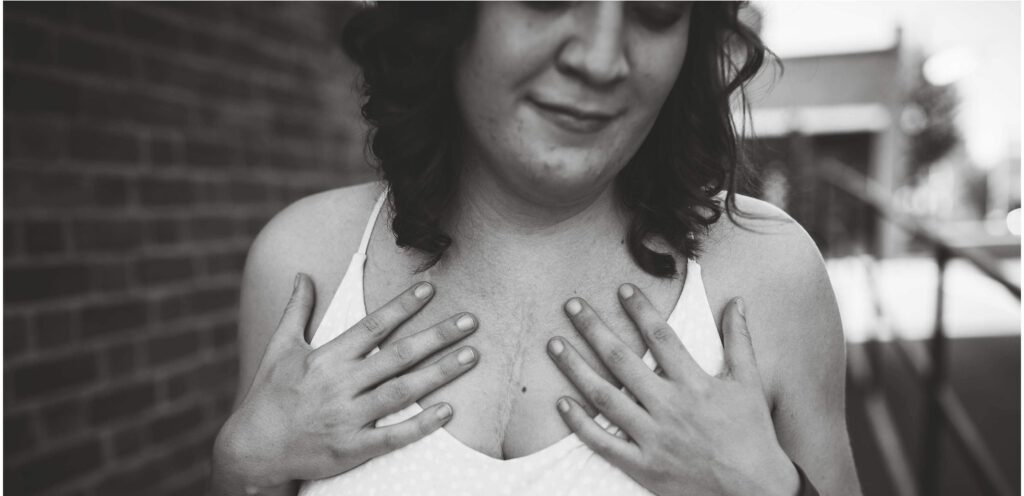Previous Heart Angel – Mila’s Story
An Adult with Pulmonary Atresia – Kristen’s Story
Scars Don’t Define
Kristen was born on May 11, 1995 with the congenital heart defect (CHD) Pulmonary Atresia and Intact Ventricular Septum (PV-IVS). Basically, this means the pulmonary valve in her heart is missing. At just five days old, she underwent her first open-heart surgery. Ten months later, she had her second and at age three she had her third and supposed final surgery.
She recovered and was doing well health wise but that did not mean life was easy. “Growing up, I knew I was different from other kids my age. I was always being asked why I had a scar on my chest,” Kristen remembers. However, she did not let her Pulmonary Atresia or scar define her, and instead was thankful for the lifesaving surgeries the scar symbolized. “My family would tell me my scar does make me different, but that I also wouldn’t be here without the intervention.”
Fourth Times a Charm
In her 20’s Kristen was met with shocking news. She would need a fourth open heart surgery. “When I found out, I cried so much. I was really scared. I didn’t remember my three surgeries from early childhood.” She asked questions, prayed and hoped but found it difficult to find solace leading up to her first surgery as an adult. “While sitting in the waiting room, reality hit me hard. I was about to undergo yet another major open-heart surgery.” After a 16-hour surgery and ample recovery time, Kristen is now 23 and thriving despite her Pulmonary Atresia. “I always had the perspective of just wanting to be happy in my life and live on day at a time. Life is short, make the best out of it.”
Hope Through Research
There is no cure for congenital heart disease or Pulmonary Atresia, yet. Kristen has undergone four temporary fixes and her scar is a reminder of that. “I embrace my scar because it is a part of who I am. It is a reminder of everything I have been through. This is my story.” It is just a waiting period for the next cardiologist appointment and intervention. That is the life of a heart warrior until a cure is found. “My hope for the future of CHD is more [research] funding to find out why these heart defects happen and what can be done to prevent them,” Kristen said.
